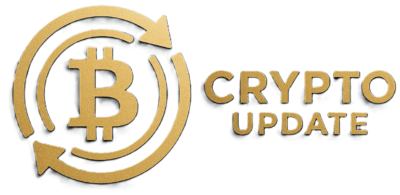
What is ETH?
Ether (ETH) is the currency that powers the Ethereum blockchain. It’s used to pay transaction (“gas”) fees and secure the network via staking. ETH also serves as a widely traded digital asset. Ethereum hosts thousands of apps spanning DeFi, NFTs, gaming, and more. ethereum.org+1
What does “ETH on Binance” mean?
On Binance, ETH is available in multiple product lines:
- Spot markets (e.g., ETH/USDT), where you buy/sell actual ETH. Binance’s ETH/USDT spot page shows real-time price, depth, and indicators. Binance
- Derivatives (perpetual futures), where you trade contracts that track ETH’s price (with funding rates and leverage), without moving the underlying ETH. Binance
- Staking / “Simple Earn” offerings for ETH, which let you stake ETH via Binance and earn rewards (with program-specific terms, yields, and risks). Binance
Deposit & withdrawal networks for ETH
Binance supports ETH deposits/withdrawals on different networks over time (e.g., Ethereum mainnet and selected L2s/sidechains as they become available). Always check the live “Deposit & Withdrawal Status” page and the deposit form for your account before sending funds, because supported networks and fees can change. Historical examples include integrations of Ethereum-compatible networks announced in Binance notices. Binance+1
Trading fees & on-chain fees (what you’ll pay)
- Exchange (maker/taker) fees apply when you trade ETH on Binance spot/futures. Exact tiers depend on your VIP level, 30-day volume, and whether you use BNB for discounts; refer to a current fee breakdown or Binance’s official schedules. CryptoPotato+1
- Network (gas) fees apply when you withdraw ETH on-chain; these vary by network congestion and are listed per asset/network on Binance’s fees page. Binance
How to use ETH on Binance (typical flows)
- Deposit or buy ETH
- Deposit from an external wallet using a supported network (double-check network and address!), or buy ETH on the ETH/USDT spot market (or other pairs). Binance+1
- Trade ETH
- Use spot for direct ownership; use futures for leveraged exposure with funding payments/credits. Binance
- Stake ETH (optional)
- Explore Binance’s ETH staking/Simple Earn pages for yield options and program details (lockup, redemption times, risks). Binance
- Withdraw ETH
- When moving ETH out, select your target network carefully and review the dynamic withdrawal fee shown at the time. Binance
Key risks to understand
- Price volatility: ETH’s price can move quickly; use limits and position sizing. (See live charts to monitor trends.) TradingView
- Leverage risk (futures): Liquidation risk rises with leverage; funding rates can add costs over time. Binance
- Network selection errors: Depositing or withdrawing on the wrong network can lead to loss of funds; always confirm network support in your account first. Binance
- Program terms for staking: Yields, lockups, and redemption windows can change; review the current ETH staking page before committing. Binance
Useful, official, and current references
- Ethereum (what ETH is and how it’s used): ethereum.org’s “What is Ethereum?” and “What is Ether (ETH?)” pages. ethereum.org+1
- ETH spot market on Binance: ETH/USDT trading page (live price, order book, indicators). Binance
- Futures funding & derivatives notes: Binance real-time funding rate dashboard. Binance
- ETH staking on Binance: ETH staking / Simple Earn page. Binance
- Deposit/withdrawal network status: Live Binance network status page for supported networks and any temporary suspensions. Binance
- Withdrawal/deposit fees (dynamic): Binance crypto fee list. Binance
- TradingView widget docs: Widget integration & constructor options. TradingView+1
Final tips for website readers
- Always double-check networks when moving ETH to/from Binance.
- Start with spot if you’re new; only use leverage if you fully understand liquidation and funding. Binance
- Read the current staking terms before locking ETH; yields and redemption times can change. Binance
Written by https://cryptoud.net/

